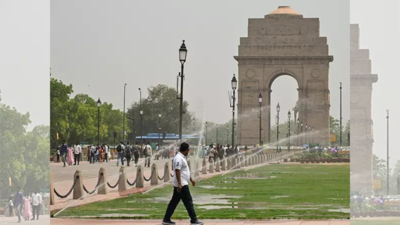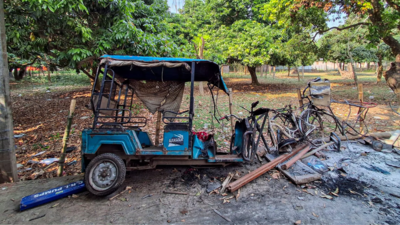Government asks states to adhere to timelines after launch of Waqf portal | India News

NEW DELHI: Only properties registered as waqf with the state boards will be able to upload their details for verification and get a 17-number unique ID on the new Central Waqf Portal launched by govt on Friday. This also applies to “waqf by user” properties that existed prior to the Waqf Amendment Act 2025 coming into force on April 8.Sharing that there were over 9 lakh waqf properties in India, minority affairs minister Kiren Rijiju asserted that states should follow the timelines strictly and the boards must ensure that details of all waqf properties registered with them are uploaded on the portal within the stipulated 6 months.“All old properties that are in keeping with the law — titled and legitimate — will get included. Those that are illegal and without any documents will not get included. New waqf properties that get created going forward will be included in the database,” Rijiju said.According to officials, waqf properties that are not registered will need to approach their waqf boards to complete the process of registration. In the case of properties whose details are uploaded but which fail to get validated on the portal, there will be the option to approach the waqf tribunal for redressal.On what happens to properties which have supposedly been used as waqf but lack documents to prove so, Rijiju said: “Such waqf properties that do not have adequate documents but which are recognised socially and by govt and are working, we are not declaring them illegal. The issues are only with those kinds of properties which have been acquired forcefully, fraudulently, or do not have proper supportive documents or provisions. Moreover, the law does not prevent anyone from performing any religious rituals….”He, however, emphasised that going forward all waqf properties will need to fix whatever is missing in their documentation in order to come on board.On the portal, the entry of property details by the Mutawalli (caretaker) will be followed by validation by waqf boards and approval by designated govt authorities, after verification of records, to enable its entry into the ‘UMEED’ (Unified Waqf Management, Empowerment, Efficiency and Development Act 1995) portal.For the wide-ranging details related to any property, the portal also requires the Muttawali to give a declaration before uploading them. This includes questions like “have you failed to maintain regular accounts for two consecutive years or submit for two consecutive years the yearly statement of accounts as per law; have you been convicted of any offence and sentenced to imprisonment of less than two years; and are you part of any unlawful organisation under UAPA”.Key features of the portal include creation of a digital inventory with geo-tagging of all waqf properties, online grievance redressal system, transparent leasing and usage tracking, integration with GIS mapping and public access to verified records and reports.Pointing out that there was no stay on the law by the judiciary, Rijiju stressed that the portal in no way violates the law or the Constitution. The minister was responding to All India Muslim Personal Law Board’s statement that it will challenge the legal validity of the portal in the Supreme Court where the law is under scrutiny.



